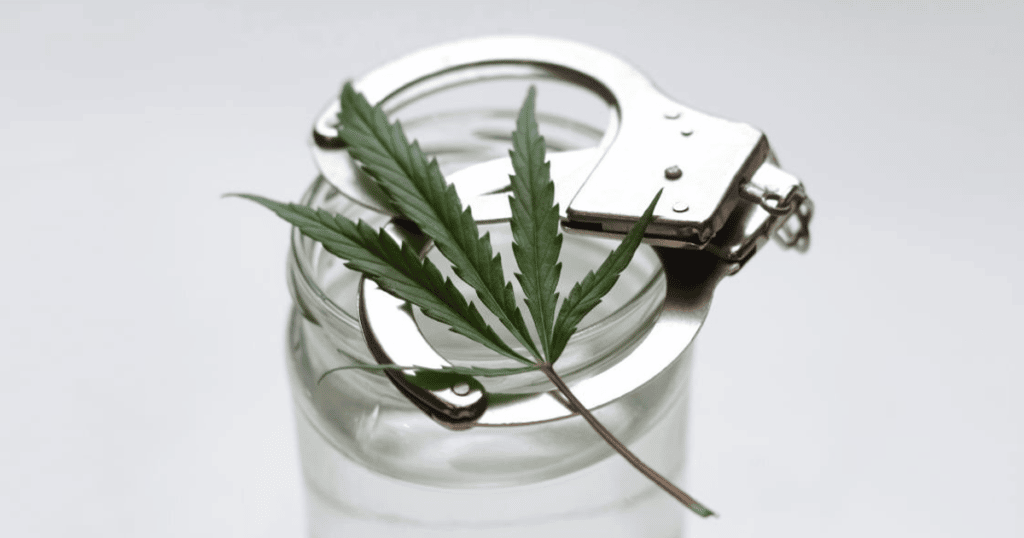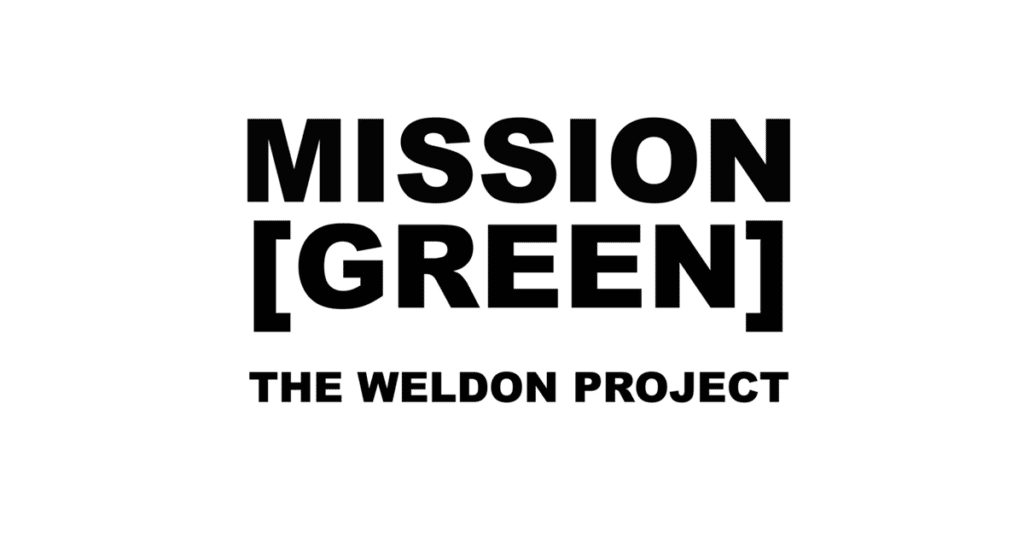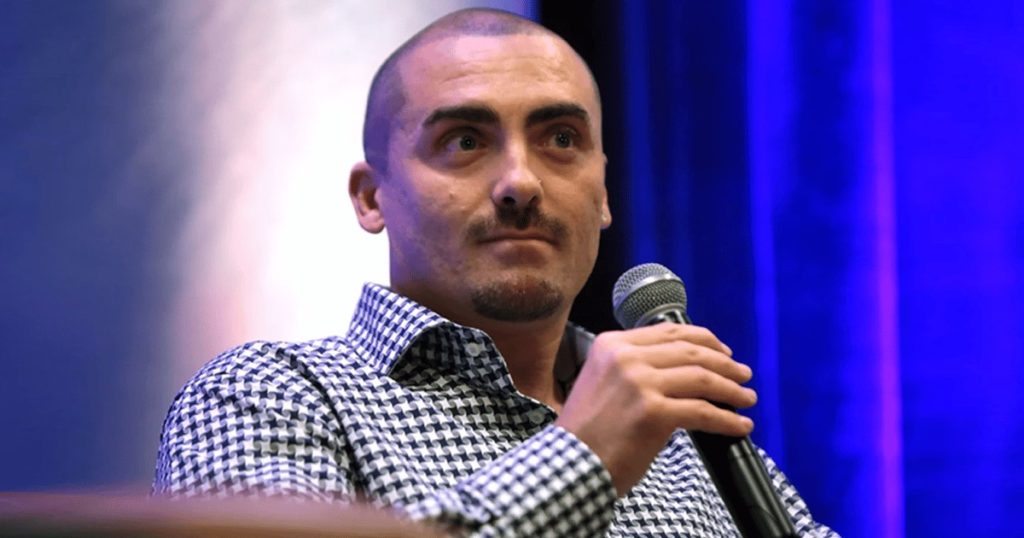Weldon Angelos is criminal justice reform advocate and founder of The Weldon Project, a non-profit organization committed to securing relief for incarcerated people over cannabis. He received a presidential pardon for his own federal marijuana conviction in 2020 after serving 13 years in prison.
Tuesday the 26th of July 2022 was a historic day in the U.S. Senate. Members of a key subcommittee invited me to testify at a hearing on cannabis reform and the harms of criminalization—a first-of-its-kind meeting in a chamber where marijuana policy and the lifelong consequences of prohibition have been swept under the rug for far too long.
My message to the panel was simple: My name is Weldon Angelos, and I am living proof of the benefits of second chances. But I’m far from the only person deserving of relief. I plan to remind members that inaction will only continue to breed injustice, and there’s no more time to waste.
The topic of the hearing—the critically important issue of federal cannabis decriminalization—affects millions of Americans, from those who have interacted with the criminal justice system to patients and veterans who get relief from cannabis.
I’m grateful to the subcommittee chairman, Senator Booker, and Senator Lee for their ongoing commitment to my cause and case. Without their help, I might still be serving time in federal prison.
The Incarceration Of Weldon Angelos
When I was 23 years old, I worked in the music industry as a producer for artists like Snoop Dogg and Tupac Shakur’s recording group. It was my dream job. In addition to my music career, I was also selling small amounts of cannabis on the side to help pay the bills until my music ventures stabilized. Unfortunately, my connections to the music industry—particularly hip-hop—made me the perfect target for law enforcement.
After selling $300 worth of cannabis to a confidential informant on three occasions, I was arrested, tried, and convicted on 16 federal counts, the most serious of which included harsh mandatory punishments such as the relevant statute, 18 U.S.C § 924(c).
The relevant statute, 18 U.S.C. § 924(c), punished the combination of any amount of cannabis and a lawfully possessed firearm. It didn’t matter that the drug was a small amount of cannabis; it didn’t matter that ownership and possession of the firearm was otherwise legal under state law, and it didn’t matter that the firearm wasn’t brandished or used.
A defendant can be convicted for having cannabis and legal guns in their home. In my case, all these problems applied with a vengeance.
For me, the result was a 55-year mandatory minimum sentence—a punishment that even the judge who sentenced me, a conservative George W. Bush appointee named Paul Cassell, called “cruel, unjust, and even irrational,” and a case “where the system has malfunctioned.”
In 2016, thanks to the help and unrelenting advocacy of my family, bipartisan elected officials, the media, prominent celebrities, and even the man who prosecuted me, I was finally released under President Obama’s administration after serving 13 years for a cannabis offense. In 2020, I was fully pardoned by President Trump.
Now that I am no longer incarcerated, I have dedicated my life to ending cannabis prohibition and mass incarceration.
Since my release, I have devoted my life to criminal justice reform advocacy, working on cannabis clemency issues with multiple presidential administrations, and helping pass the bipartisan First Step Act.

The Weldon Project
I founded the Weldon Project, a non-profit organization that works to secure the release of those serving time for cannabis-related offenses and to create pathways to pardons and expungement of records so that those impacted may go on to live meaningful lives.
National cannabis reform must include:
- The release of federal cannabis offenders;
- A true expungement and sealing of records;
- The creation of meaningful opportunities for the formerly incarcerated upon release.
With a comprehensive approach to cannabis reform, we could immediately assist many of the nearly 3,000 people serving federal prison time for cannabis offenses and tens of thousands of individuals whose lives and futures are haunted by records of cannabis arrests, convictions, and sentences.
Further, still, Congress must provide the resources to address state-level cannabis arrests, convictions, and sentences, since each year, hundreds of thousands of individuals become entangled in state criminal justice systems despite cannabis being legal in some form in 37 states, three U.S. territories, and the District of Columbia.
This is why I was excited and grateful to see the Cannabis Administration and Opportunity Act introduced.

The Cannabis Administration And Opportunity Act
The Cannabis Administration and Opportunity Act(S.4591) is a proposed bill in the United States Congress to recognize the legalization of cannabis by the state. The bill is authored by Senate Majority Leader Chuck Schumer, Senator Cory Booker, and Senator Ron Wyden.
The Cannabis Administration and Opportunity Act was officially introduced in the United States Senate on the 21st of July 2022.
This bill would deschedule cannabis, helping to end the harmful criminal justice impacts of prohibition and supporting the expungement and resentencing of cannabis convictions, all while allowing states the right to decide the direction their jurisdiction will take.
Congress must also address the residual effects of cannabis convictions. For instance, those with felony convictions can be politically disenfranchised, losing the right to vote or serve on juries.
They lose other civil liberties like the right to legally possess a firearm and lawful opportunities afforded to others in education and public housing, among other things.
Cannabis convictions adversely impact credit scores too, and they can impede or entirely prevent employment, creating permanent barriers to true participation in society.
Even with a full presidential pardon, I still feel the stranglehold of my cannabis conviction.
My prior conviction bars me from participating in the state’s legal medical cannabis industry in my home state of Utah.
The state refuses to issue licenses to individuals with felony cannabis convictions, even with a full presidential pardon.
In California—the other state I call home—my criminal history prevents me from accessing credit, capital, and financing despite engaging in conduct that is now legal throughout the jurisdiction.
As a result, I’ve been effectively shut out of an entire legal industry that is supposed to be one of the most equitable in the country.
As further testament to the importance of completely clearing a record, this past spring, I attended a meeting with senior staff of the Biden Administration.
Despite nearly a dozen previous White House admissions and being invited by the President, I was almost prevented from entering because of a latent criminal record—for conduct that has been entirely pardoned— but still lingered in the Secret Service background check.
That I was nearly barred from a discussion with presidential advisors about criminal justice reform and the effects of cannabis convictions because of a cannabis conviction that had been presidentially pardoned would be funny if it weren’t true. But it is ironic and poignantly cruel.
I am hopeful, however, because of the Senate subcommittee’s consideration of the Cannabis Administration and Opportunity Act. The bill and its expungement provisions could be life-changing for individuals incarcerated in the federal prison system for cannabis offenses. But I caution against complacency.
We are in what my friend and co-author, Professor Erik Luna, has called the “twilight of marijuana prohibition,” and people’s lives remain at stake. If we can make any progress today—whether through legislation or executive action—we must seize that opportunity to move forward toward a post-prohibition approach to federal cannabis law.
Each day in incarceration severely affects the mental and physical health of incarcerated individuals and negatively impacts their relationships with the outside world. And each arrest, prosecution, conviction, and sentence makes the world smaller for those who must live their lives bearing the modern scarlet letter.
I realize that I am one of the lucky ones. I am no longer inmate 10053-081. I am Weldon Angelos, a reform advocate with the immense privilege of being invited to testify before a Senate panel.
But my fortune is not universal. I am reminded of all those left behind in prison—those still serving unjust sentences—many of whom are Black and Hispanic men and women who continue to serve time while predominantly white CEOs and entrepreneurs make millions from the recreational and medical cannabis industries around the country.
The cannabis industry should be able to grow and thrive, but not at the expense of those who are still incarcerated.
And as we think about federal cannabis reform and ensure the release of those still serving, we must also provide opportunities and resources to support reentry and create a pathway to expungement to stop the collateral consequences.
I firmly believe we can build on the bipartisan success of criminal justice reforms like the First Step Act and work to end the racially motivated cannabis policies that have endured for too many decades.
Congress has the opportunity and the obligation to right these historic wrongs and replace the punitive policies of the past with legislation that recognizes the critical need to repair decades of systemic harm.
I hope that my testimony will help move this issue forward. I hope my words hit home for senators and help underscore that this is not about partisan politics. It’s about doing what’s right, what’s common sense, and what works.
Critical Comment From The Hearing On The 26th Of July 2022
During the hearing where Weldon Angelos spoke, other key witnesses said the following regarding the new bill designed to expunge criminal records for federal cannabis convictions.
Witness promoting the First Step Act
Sen. Richard Durbin (D., Ill.), chair of the committee, said Angelos is more than a witness but a “legend” for his work promoting the First Step Act, which has helped free federal prisoners.
Dr. Malick Burnett, medical director of the Maryland Department of Health’s Center for Harm Reduction Services, said the use of cannabis among teens has remained flat despite state legalization.
He said that the legal cannabis business had provided a windfall to mostly white-run companies while people of color continue to get arrested at a higher rate for illegal marijuana activity.
Edward Jackson, chief of the police department in Annapolis, Md., said he’d spent too much time arresting people for cannabis when he became an officer to help the community and combat violence.
“Prohibition fuels violence, not cannabis,” Jackson said. Currently, cannabis convictions often push people to continue to work in the illegal drug business because they’re unable to get jobs because of their criminal records.
Witnesses opposing the First Step Act
Steven H. Cook, former associate deputy attorney and a past president of the National Association of Assistant U.S. Attorneys, said people caught drug trafficking on the federal level should be held responsible regardless of race or gender.
“Legalization in California is strengthening drug cartels because they’re able to more easily set up illegal grow operations in the state instead of smuggling cannabis over the border,” he stated.
Sen. Tom Cotton (R., Ark.) said the CAOA is not about medical research or medicine. It’s about the legalization and commercialization of cannabis. It would make marijuana “much more easily available” and wipe clean the records of drug traffickers and gang members as an “enormous gift to cartels,” he said.
Sen. Cory Booker (D., N.J.) said the federal prohibition of cannabis has failed and inflicted damage on communities of color. While medical cannabis is legal in 38 states and the District of Columbia, the federal government “remains out of step with the majority of our citizens,” Booker said.
Alex Berenson, author of “Tell Your Children: The Truth About Marijuana, Mental Illness and Violence,” said early cannabis use can raise the odds of a child developing schizophrenia or other mental illness. Cannabis products have become much more potent today, and the industry continues to resist dialog around data showing harmful health effects of cannabis use and THC.
“Enjoyed that first hit? Come chill with us every week at the Friday Sesh for a freshly packed bowl of the week’s best cannabis news!”
















